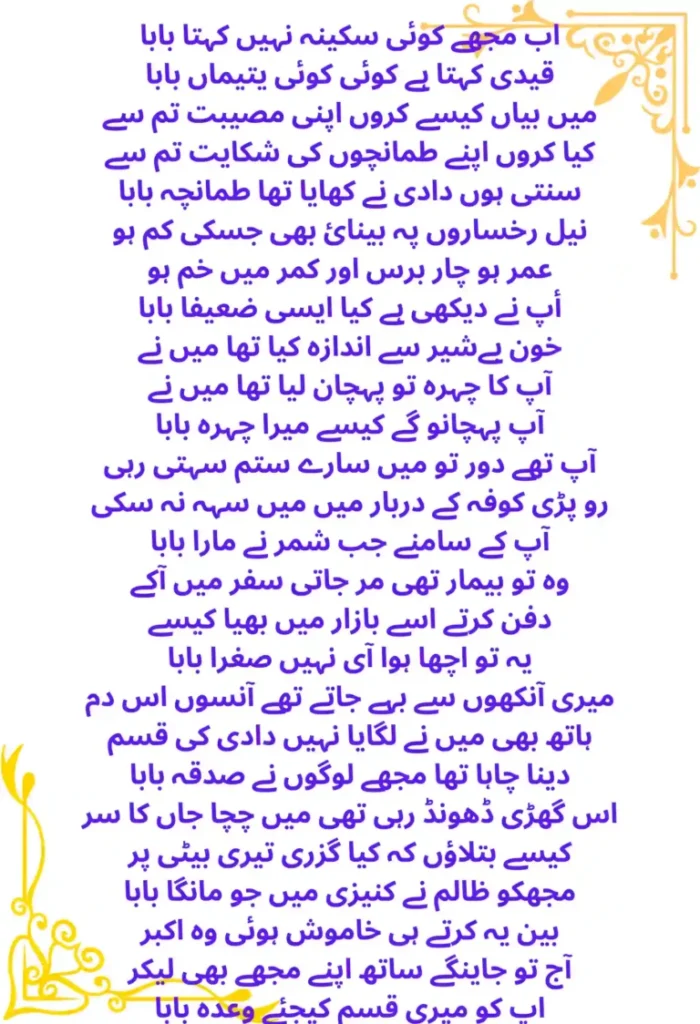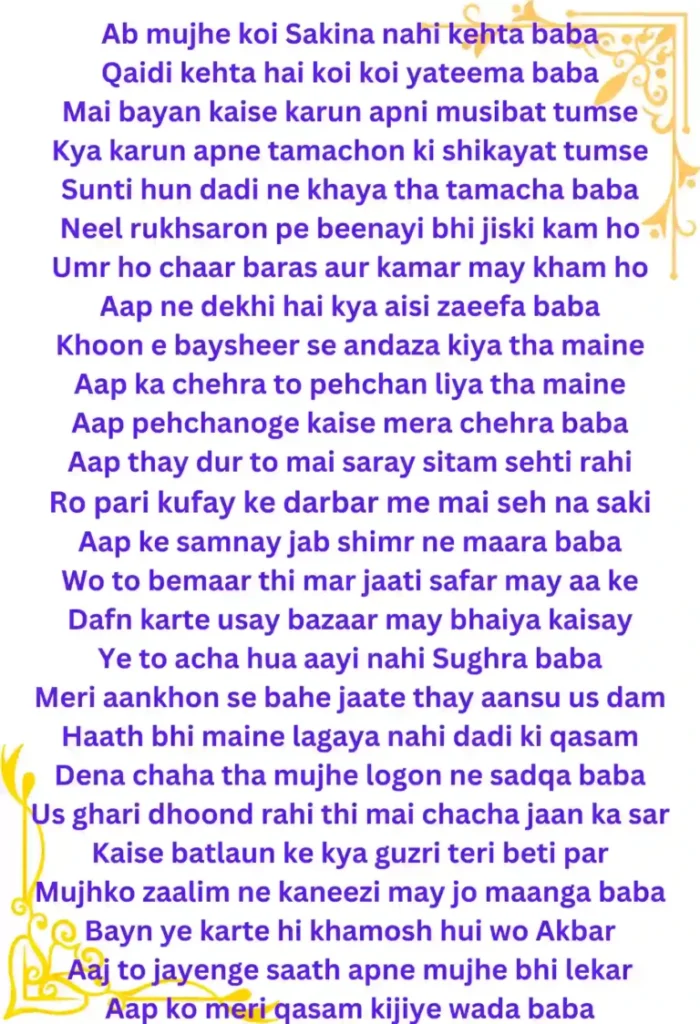In the tapestry of human expression, music holds a unique power. It transcends language and culture, weaving a soundtrack to our lives and stirring emotions that resonate deep within. Ab Mujhe Koi Sakina Nahi Kehta Baba (Now, no one calls me Sakina anymore, Baba) is one such melody that transcends geographical boundaries, leaving a lasting impression on countless listeners. Let’s embark on a journey to unveil the emotional depths of these poignant lyrics, peeling back the layers of meaning and exploring the reasons for their enduring impact.
A World Painted in Loss:
The opening line, “Ab Mujhe Koi Sakina Nahi Kehta,” establishes a stark contrast between the past and present. “Ab” (now) signifies a definitive shift, a departure from a cherished past where the speaker was addressed as “Sakina.” This cherished moniker could symbolize a loved one, a sense of security, or a simpler time in life. The addition of “Baba” (father) injects a layer of intimacy and longing, hinting at a broken bond, a yearning for guidance in the face of loss.
A Universe of Interpretations:
The allure of these lyrics is found in their mysteriousness.. While the literal translation evokes a sense of loss and longing, the true power lies in the open-ended interpretation. The speaker’s identity remains shrouded in mystery, allowing listeners to project their own experiences and emotions onto the narrative. For some, “Sakina” might represent a lost loved one, a child, a friend, or a cherished dream. “Baba” could symbolize a parental figure, a mentor, or even a sense of faith.
A Symphony of Shared Emotions:
Regardless of individual interpretations, the core emotions conveyed by the lyrics are universal. The lament “no one calls me Sakina anymore” evokes a profound sense of loneliness, a yearning for a connection that has been severed. The repetition of the phrase intensifies this feeling, creating a sense of desperation and longing. However, amidst the grief, there’s a flicker of acceptance. The speaker acknowledges the change, the loss, and the new reality.
Beyond Words: The Power of Music:
The power of “Ab Mujhe Koi Sakina Nahi Kehta Baba” transcends the literal meaning of the words. The melody itself plays a crucial role in conveying the emotions. The melancholic tone reflects the speaker’s sorrow, while the underlying rhythm whispers of resilience and the enduring nature of the human spirit.
A Song for All Seasons:
The universality of the themes explored in these lyrics ensures their enduring relevance. Anyone who has experienced loss, heartbreak, or a significant change in their life will find themselves resonating with the sentiments expressed. “Ab Mujhe Koi Sakina Nahi Kehta Baba” serves as a reminder that we are not alone in our struggles, and that music has the power to provide solace and a sense of shared experience.
The Heartfelt Plea: Ab Mujhe Koi Sakina Nahi Kehta Baba Lyrics Explained



Conclusion: A Timeless Melody
“Ab Mujhe Koi Sakina Nahi Kehta Baba” is more than just a song; it’s a poignant tapestry woven from loss, acceptance, and the enduring human spirit. It reminds us of the transformative power of music, its ability to connect us on a deep emotional level and offer comfort in the face of adversity. The next time you hear this haunting melody, allow yourself to be swept away by its raw emotion and profound beauty. Let it serve as a catalyst for introspection, a reminder of the strength and resilience that lies within each of us.
Related post:
| Tamanna Muddaton Se Hai: A Heartfelt Naat |
| Ilahi Teri chokhat per lyrics Naat in Urdu |
| Ya Nabi Nazre Karam Farmana Lyrics |
| The Meaning Wah Kya Judo Karam Lyrics |
FAQs:
This poignant line translates to “Now, no one calls me Sakina anymore, Baba” (father). It expresses a deep sense of loss and longing, hinting at a bygone identity or connection. The use of “Baba” adds a layer of intimacy, suggesting a yearning for guidance in the face of absence.
While the exact origin remains unclear, these lyrics are often associated with Muharram commemorations in Shia Islam. They evoke the profound grief experienced by the family of Imam Hussain (AS) after the tragic events of Karbala.
The beauty of these words lies in their emotional universality. The lament of “no one calls me Sakina anymore” transcends religious and cultural boundaries. It resonates with anyone who has experienced loss, a broken bond, or a significant change in their life.




